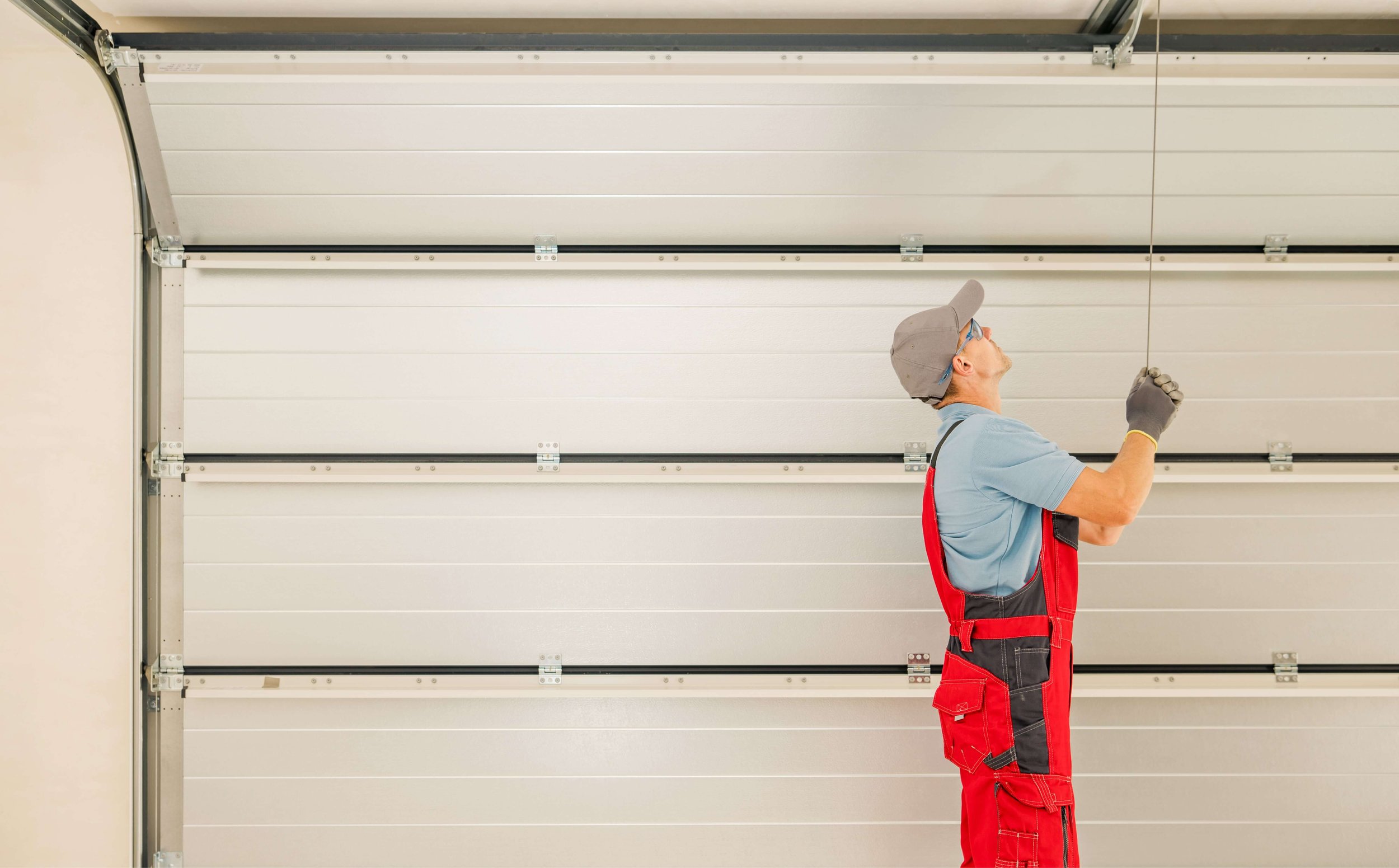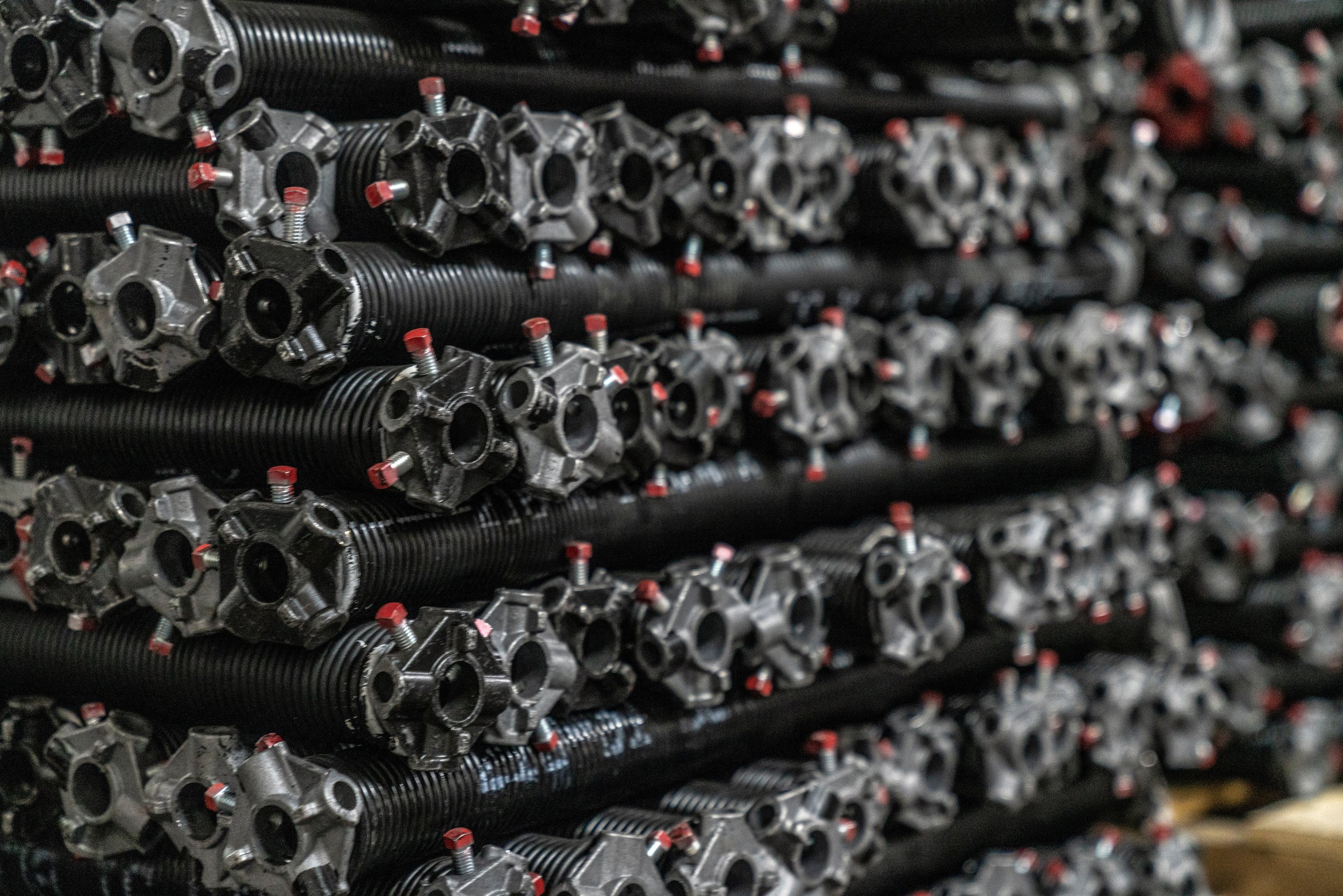Common Garage Door Issues & How to Fix Them
We know that garage door issues can be more than just an inconvenience - they're a significant investment consideration. In fact, replacing a garage door offers an impressive 102.7% return on investment, making it one of the most valuable home improvements you can make.
However, with proper maintenance, your garage door can last between 15 to 30 years. That's why understanding common garage door problems is crucial. From doors that won't close properly to unexpected malfunctions, these issues cost homeowners an average of $260 per repair.
We've created this comprehensive guide to help you identify and address the most common garage door issues. Whether you're dealing with misaligned sensors, broken springs, or a garage door opener not working, we'll walk you through the essential steps to maintain your garage door's functionality and extend its lifespan.
Understanding Your Garage Door System
Initially, understanding the key components of your garage door system helps identify potential issues before they become major problems. Your garage door operates through a complex interaction of springs, cables, tracks, and rollers working together to lift several hundred pounds of weight.
Key components and their functions
The heart of your garage door system lies in its springs. These powerful components counterbalance the door's weight, making it possible to lift with minimal effort. Additionally, the system relies on garage door cables that support the door's weight during movement, while tracks guide the door's path. Furthermore, the rollers, which can be steel or nylon, enable smooth operation as they glide along the tracks.
Common wear points
The most frequent wear points primarily occur in the system's moving parts. The torsion springs, located above the door, and extension springs, positioned along the tracks, typically last through 10,000 cycles before requiring garage door spring replacement. Moreover, the steel or nylon rollers within the tracks can become damaged or rusted over time. Notably, the chain-in chain-drive garage door openers often develop tension issues, potentially causing the system to fail.
Signs of potential failure
We've identified several key indicators that suggest your garage door system needs attention:
Popping or squeaking sounds during operation
Slow or uneven door movement
Door reversal without obvious obstruction
Visible cable fraying or spring damage
Bent or misaligned tracks affecting door balance
Consequently, when these signs appear, they often indicate underlying issues that require prompt attention. The average garage door performs approximately 1,500 cycles annually, making regular system checks essential for maintaining optimal performance.
Preventive Maintenance Schedule
Regular maintenance stands as the cornerstone of preventing garage door issues. We've created a comprehensive maintenance schedule to help you avoid common garage door problems and extend your system's lifespan.
Monthly inspection checklist
A thorough monthly inspection helps identify potential problems early. Accordingly, we recommend these essential checks:
Inspect tracks and rollers for debris and damage
Test the automatic reversal system
Check and tighten loose hardware
Listen for unusual garage door noise during operation
Examine cables for signs of wear
Perform a garage door balance test manually
Seasonal maintenance tasks
Specifically, each season requires unique maintenance attention. Spring and fall mark the primary times for comprehensive maintenance. Throughout spring, focus on cleaning and lubricating all moving components with silicone-based lubricant. Subsequently, prepare for winter by checking garage door weather stripping and adjusting opener force settings to account for temperature changes.
Professional service intervals
Generally, garage door professional service should occur at least once annually. Nevertheless, certain conditions may require more frequent professional attention. For instance, doors in coastal areas need additional servicing due to salt air exposure. Older systems, particularly those exceeding fifteen years, should undergo professional inspection twice yearly.
Professional technicians perform comprehensive checks that go beyond basic maintenance, including:
Thorough spring system inspection
Complete hardware evaluation
Door balance adjustment
Remember that a well-maintained garage door typically performs about 1,500 cycles annually. Therefore, scheduling professional maintenance helps prevent unexpected breakdowns and ensures safe, efficient operation throughout the year.
Extending Your Garage Door's Lifespan
Smart usage habits form the foundation of a long-lasting garage door system. Rather than using your garage door frequently, we recommend limiting cycles to essential access only. A typical garage door performs about 1,500 cycles annually, although reducing this number can extend its operational life significantly.
Proper usage habits
Mindful operation makes a substantial difference in longevity. Essentially, each garage door has a finite number of cycles, typically lasting between 15 to 30 years. Besides regular operation, we advise against letting children use the door for entertainment, as excessive cycles can accelerate wear on critical components and lead to garage door opener problems.
Weather protection tips
Protecting your garage door from weather elements requires proactive measures. Altogether, maintaining clean door panels prevents corrosion and decay. We recommend washing panels with mild detergent and water, soon followed by thorough drying to prevent moisture damage. Certainly, checking garage door weather stripping integrity proves crucial - this rubber barrier keeps out water, ice, and dirt that could otherwise damage your door system.
Upgrade considerations
Primarily, strategic upgrades can enhance your door's durability and performance. Consider these valuable improvements:
High-cycle springs rated beyond standard 10,000 cycles
Smart garage door openers with monitoring capabilities
Energy-efficient insulation for temperature regulation
Reinforced safety features and modern locking systems
Undoubtedly, upgrading to higher-cycle springs represents one of the most impactful investments, as these components are engineered to withstand increased usage. Furthermore, modern garage doors equipped with smart technology allow remote monitoring and operation, adding both convenience and security to your system.
Cost-Effective Maintenance vs. Repairs
Maintaining a garage door system requires balancing cost-effective maintenance against potentially expensive repairs. The average garage door repair costs between USD 155.00 and USD 377.00, with most homeowners spending around USD 263.00.
Budget-friendly maintenance tips
Professional garage door maintenance typically costs USD 80.00 per hour, hence we recommend handling basic upkeep yourself. Primarily, focus on:
Parts lubrication: USD 5.00-10.00 annually
Hardware tightening: No cost
Garage door track cleaning: No cost
Visual inspections: No cost
Weather stripping replacement: USD 100.00-200.00
When repairs make sense
Indeed, some repairs demand professional attention. Labor rates range from USD 75.00 to USD 150.00 per hour, with service calls starting at USD 50.00. Likewise, parts typically represent 20% of total repair costs. We recommend professional repairs for:
Springs replacement (USD 180.00-350.00), as these components handle loads exceeding 800 pounds. Similarly, chain repairs (USD 100.00-400.00) and photo eye sensors issues (USD 150.00-250.00) often require expert attention.
Replacement timing guidelines
Simultaneously considering age and repair frequency helps determine replacement timing. If your door exceeds 15 years and repair costs approach replacement value, investing in a new system often makes financial sense. Nonetheless, proper maintenance can extend a door's life to 20-25 years.
A new garage door offers substantial returns, with replacement projects yielding approximately 90% return on investment. Primarily, consider replacement if multiple repair issues arise simultaneously or when energy efficiency becomes a concern due to poor insulation.
Let Us Fix Your Garage Door Issues
Certainly, garage door maintenance represents a significant investment in your home's functionality and value. Rather than waiting for costly repairs, we've shown how regular maintenance can extend your door's lifespan well beyond the average 15-30 years while protecting your investment.
Through proper care and attention to warning signs, homeowners can avoid many common garage door issues. Professional maintenance, though seemingly costly upfront, ultimately saves money by preventing major repairs and system failures. For expert guidance and reliable service, we recommend Old Town Garage, your one-stop-shop for high-quality garage door repairs and services in Murrieta, a family-owned business with over 25 years of experience in providing excellent overhead door repair services.
Remember, your garage door is more than just an entry point - it's a valuable home investment offering impressive returns. Therefore, maintaining its optimal performance through regular inspections, timely repairs, and professional servicing ensures both safety and long-term value for your home.
FAQs
-
Common garage door problems include misaligned tracks, broken springs, worn-out cables, and malfunctioning sensors. Regular maintenance can help prevent many of these issues, including garage door opener not working or garage door not opening.
-
It's recommended to have your garage door professionally serviced at least once a year. However, older systems or those in coastal areas may require more frequent inspections.
-
Yes, you can perform basic maintenance tasks such as lubricating moving parts, tightening hardware, cleaning tracks, and conducting visual inspections. However, leave complex repairs to professionals, especially when dealing with garage door opener issues or garage door malfunction.
-
With proper maintenance, a garage door can last between 15 to 30 years. The lifespan depends on factors such as usage frequency, environmental conditions, and quality of maintenance.
-
Consider replacement if your door is over 15 years old and repair costs are approaching the cost of a new door. Also, if you're experiencing multiple issues simultaneously, such as garage door problems opening and closing or if your garage door opener stopped working, replacement might be more cost-effective in the long run.




